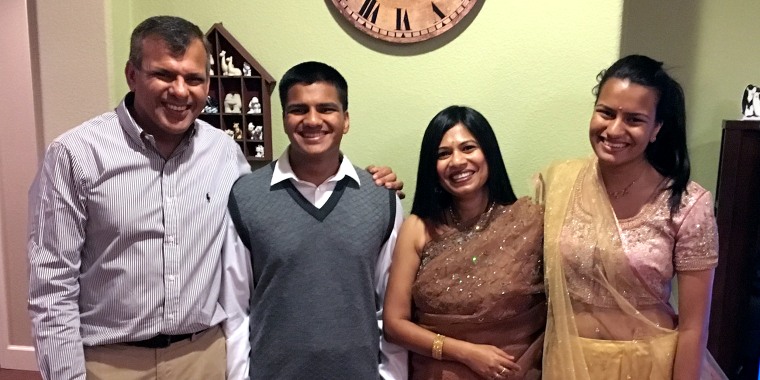This year is only the second time in their lives that my parents have voted. Until 2016, I don’t think they understood what voting in America really meant.
These tools often have to be passed up: It’s the children who learn about voting and show their parents how to participate, rather than the other way around.
Settling down in always-blue California after arriving in the United States in 1992 meant that presidential campaigns never reached their front door, and learning about the importance of voting wasn’t part of their citizenship tests: It was more essential for them to memorize how many amendments there were to the Constitution than how to go about amending it.
Voting in India, where both of them were born and raised, looked very different from voting in the United States, but still seemed pointless. One year, my grandfather was assigned to work at a polling station on election days in Faridabad, a suburb of New Delhi. When he came home that day, my father could see that he was visibly shaken. A group of men, all carrying rifles, had walked into the station and had each voted 10 times. No one working there dared say anything, and the men walked out and drove away — presumably to the next polling station.
I grew up with a much different view of what casting a ballot meant. To me, it wasn’t a hopeless attempt to change a rigged system; it was a rare moment where you could directly affect the future of the entire country. I had learned that voting was a civic duty for every citizen upon reaching 18, and I took that job seriously even before I could cast my ballot.
THINKing about the 2020 election aftermath? Submit a letter to the editor for our special election newsletter.
I wanted to be prepared when the time came, so when my high school history teacher went through every single proposition on the ballot during class the day after the 2016 election, showing us how we could learn more about the politicians who supported a certain initiative and who was funding the ad campaigns we were seeing on TV, I carefully noted down the website that he referred to and took notes on the strategies he had for decoding the ballot language.
I knew that voting was a privilege, and it was frustrating to see people my age not recognize that. It frustrated me even more that Asian Americans of all ages also didn’t always realize it. My parents were part of this problem, though I didn’t blame them for it — no one ever sat them down and explained how voting in the United States worked.
Until 2016, when a slight push from me helped the country gain two new voters.
The media frenzy around Donlad Trump's campaign meant that the election was always on our minds, and it was impossible to ignore what the stakes were on Nov. 8, especially as the date got closer. We didn’t want a racist, xenophobic reality star running our country, and if we didn’t vote, we might as well be saying we didn’t mind if that was the outcome.
At our frequent dinner table conversations about the election, we couldn’t help but note that none of us had ever voted in an election, and in those encounters, I was able to talk my parents into changing that. Once I put the instructions on how to vote in front of them, voting seemed so simple. They casted their first ballots, and two years later, I cast mine.
Despite being the fastest-growing racial or ethnic group in the U.S., comprising 5.6 percent of the population, Asian Americans vote at lower numbers than they should. Part of the reason is because potential voters like my parents don’t always have the tools to understand what voting can do for their communities, which have large percentages of citizens born outside the country. Ideological splits between older and younger generations can make it hard to talk to our relatives about voting, but the common denominator is that the Asian American vote clearly matters; it might even swing Pennsylvania back to blue this year.
The importance of tools like voting often have to be passed up through these tough conversations: It’s the children who learn about voting and show their parents how to participate, rather than the other way around. Political parties and the broader society tend to be much more concerned about blocs who have always known what voting entails and reliably show up at the polls, not those who need to learn about it.
Two weeks ago, my parents and I cast our votes together. We walked to the mailbox in the middle of the night and dropped our ballots in. My mom proudly stuck her “I voted” sticker on her pajamas before we went outside, and we complained about the cold on the way back. We were three U.S. citizens who had officially voted because we knew our voice in this election mattered.
As the numbers of Asian American voters grow, I wonder how many other kids that look like me helped convince their parents to vote — whether the greatest push for voter registration came around the dinner table in thousands of houses just like mine, and whether other first-generation Americans who took on that task feel some small twinge of pride when they realize the difference they’ve made.
I hope they do.



